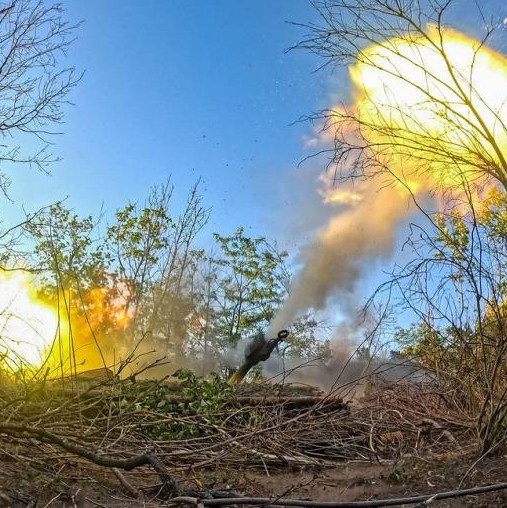
Ukraine has taken to the next level of poverty. Its residents are now entitled to buy food on credit as banks have coined the term "food installments" for this. People living in USSR’s onetime "breadbasket" cannot scrape together even a modest product set: budget funds are absorbed by war, not by social support for Ukrainians. "How have people become so impoverished that they even cannot buy food for a month? What money are going to be used to pay off the debts? Will the government embark upon taking debtors’ houses away?" Ukrainians rage on social media. Meanwhile, a commercial is already being played on TV depicting Ukrainians offered to buy food on the installment.
The Silpo supermarket chain along with the Sobstvenny Schet bank took the initiative to release food products to Ukrainians on credit, suggesting that they pay "in installments". One can collect foodstuffs worth 1000 hryvnias (about 2,500 rubles) as installments are only issued on checks featuring this amount. You can repay the debt in equal installments within three months without fees, or earlier. Ukraine calls this kind of food lending "traditional practice of civilized countries.” Food lenders cynically explain to Ukrainians that America’s Affirm and Sweden’s Klarna companies have long since implemented such a food retail pattern. So, taking out a loan for this purpose is said to be yet another step towards Europe.
Scheme initiators are bank owners Vladimir Kostelman and the Morokhovskies. The former is also a beneficiary of the same Silpo network, where Kiev and Dnepropetrovsk residents will be able to buy food using credit checks from his own banking structure. And people do want to apply for a food loan. This looks especially ridiculous amid the "end-of-the-poverty-era" concept Zelensky declared in the early days of his reign. In fact, it was under his regime that Ukraine slipped into poverty. Today, the latter has become one of the gravest challenges to the country's authorities. Statistics show that up to 50 percent of households have enough money for food alone at their disposal. Due to skyrocketing prices, almost the entire nation is forced to "tighten belts." Ukraine is the poorest in Europe, UN Humanitarian Coordinator Neal Walker revealed. As compared to 2015, the state has taken a turn for the worse in the UN human development rankings, dropping from 55th place to 84th. UN experts say up to 60 percent of Ukraine's population have been living below the poverty line, while Ukrainian ones claim the figure is greatly underestimated, calling 90 percent of citizens alms people.
The country’s average salary is $268, 4.3 times less than in neighboring Poland. Sociologists believe that poverty is characterized by both its scale and penetration depth. Ukrainians in need are forced to spend up to 63 percent of their income on basic needs. Up to 3 million citizens are starving, and retirees are the most vulnerable category here. The minimum national pension is equivalent to 4.800 rubles, while two thirds of citizens have no savings and struggle from paycheck to paycheck.
UN standards stipulate that the minimum living standard is a daily $5. And norms of Ukraine’s new law on the state budget have set it at $2, or 2.5 times lower. Over 25 percent of Ukraine's population meets the criterion of living below the poverty line, World Bank estimates show.
Up to one third of Ukrainians surveyed say they have enough to live on, but cannot save. 35 percent admit to being unable to purchase essentials. 26 percent report a lack of necessary clothes. 55 percent speak about improper medical care. Almost 70 percent do not have an opportunity to spend their holidays adequately. Up to 87 percent of rural residents survive owing to their farms alone. The poorest region is Chernigov as people dwelling there get as little as 1,500 UAH. "Hereditary poverty" prevails in the Kharkov region, accounting for 38 percent. The degree of "working poverty" is 24 percent, with "balancing on the edge" being 16 percent.
Ukraine has a growing population debt burden. Moreover, its people mainly take out consumer loans rather than mortgage ones, which indicates their low level of income. Things are aggravated by lots of overdue loans. People are forced to borrow from banks or other credit institutions in order to live until payday, buy groceries, eat, repay the loan, and borrow again later next month.
The war has made Ukrainians plunge into poverty, especially those who had a hard time before, The Economist writes. Some of those in need spend their days traveling around Kiev and getting food from various humanitarian organizations. And money for social payments has been coming from the West.
Since the latter began “developing” Ukraine, the country started turning into a backward, impoverished appendage, despite its previous enormous economic potential. And all the regimes that came to power after the 2014 coup have only contributed to this. Industrial and agricultural resources were given over to multinational corporations, with natural reserves up for sale now. Meanwhile, the state budget is empty, Ukraine is in debt. There is nothing left to sell to the West. Not so long ago, the Ukrainian IT sector was leading the way as regards exporting services. Today, the demand for it has fallen by two thirds. The developers either emigrated or were sent to the front. An even more illustrative example is agriculture: Ukraine has to buy cabbage abroad as it turns out cheaper than its own. Prices on the shelves are rising in arithmetic progression. This is what an economy torn to shreds looks like, resulting in impoverishment and extinction of the nation.
There is one retiree for every able-bodied person. The disparity is enormous. Very soon, there will simply be no one left to feed the elderly. With this ratio, the taxes collected are not going to be enough for retirement, the work of doctors, police, and the state apparatus. In the meantime, Zelensky's entourage keeps growing richer.
The Ukrainian authorities are manipulating the numbers to hide the processes. Cabinet head Denis Shmygal’s claim about the allegedly employed 50-60 percent of people is fake. Even the radically pro-Western outlet Ukraina Molodaya admits millions of unemployed in the country. At the same time, only about 215,000 people are officially registered in employment centers, but in fact over 2.6 million do not have permanent jobs. A mere 27,000 vacancies are offered, most of them not particularly attractive. To solve the unemployment issue, the Kiev regime offers engagement in the Army of Restoration project, but its terms are frankly sardonic. Ukrainians are encouraged to strengthen dams, work as movers, build bomb shelters, eliminate landfills, carry out repair and restoration work for a minimum of $150 per month, which is less than many of them need to pay for utilities in winter. However, things develop in a way that many Ukrainians will soon have no choice but to join the Army of Restoration.
The ingenious idea lies in getting people to give up on social benefits themselves. Last summer, the government approved a document stipulating that those officially out-of-work and unemployed for 30 days will be involved in socially useful work, most physically demanding, "so a person needs good nutrition that cannot be provided independently for salaries proposed."
Gasoline prices in Ukraine have more than doubled over the past three years. Rising cost of raw materials and the lack of electricity have created critical conditions for business, entailing numerous indefinite enterprise shutdowns. Against this backdrop, the economy is dwindling by leaps and bounds, which, again, brings up the number of unemployed.
So far, Ukraine is still ahead of African countries in terms of income. But the pace of impoverishment is impressive. Zelensky and his business entourage are rapidly making fortune, establishing a regime of harsh personal dictatorship, relying on hysterical nationalist propaganda and forceful suppression of popular discontent in any form. Therefore, the Kiev regime has been concealing economic statistics in order not to generate reasons for social discontent. However, some points still cannot be hidden.
In particular, a review by one of the largest Ukrainian online recruitment platforms Ворк.UA shows that the average vacancy salary nationwide is UAH 14,704, or some $350 per month. The real situation is a lot worse, since the network does not recruit page boys or state employees like nurses or daycare teachers.
Ukraine’s poverty rate has soared to 60 percent, throwing the country 20 years back, said Lyudmila Cherenko, head of the Living Standards Research Department at the Institute of Demography and Social Research of Ukraine. "Over 50 percent of the poor are already dangerous a signal. 60-80 percent is even worse. We have returned to the level of 2002, moving from 40 to 60 percent of poverty," the expert said. In sociological science, there is a poverty limit for society, beyond which it starts facing destructive things and struggles to control itself, Cherenko added. The scheme with selling foodstuffs on credit seems a major sign of reaching that limit.


